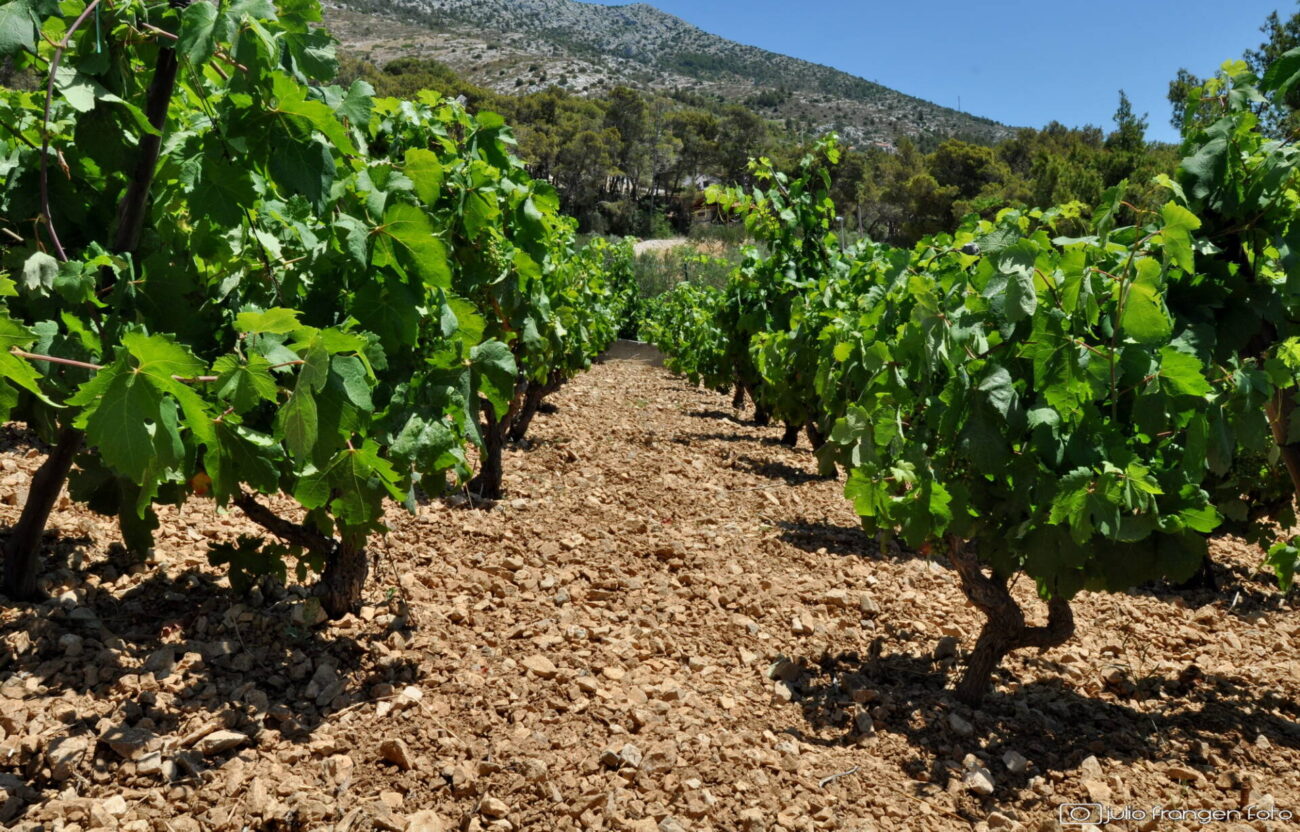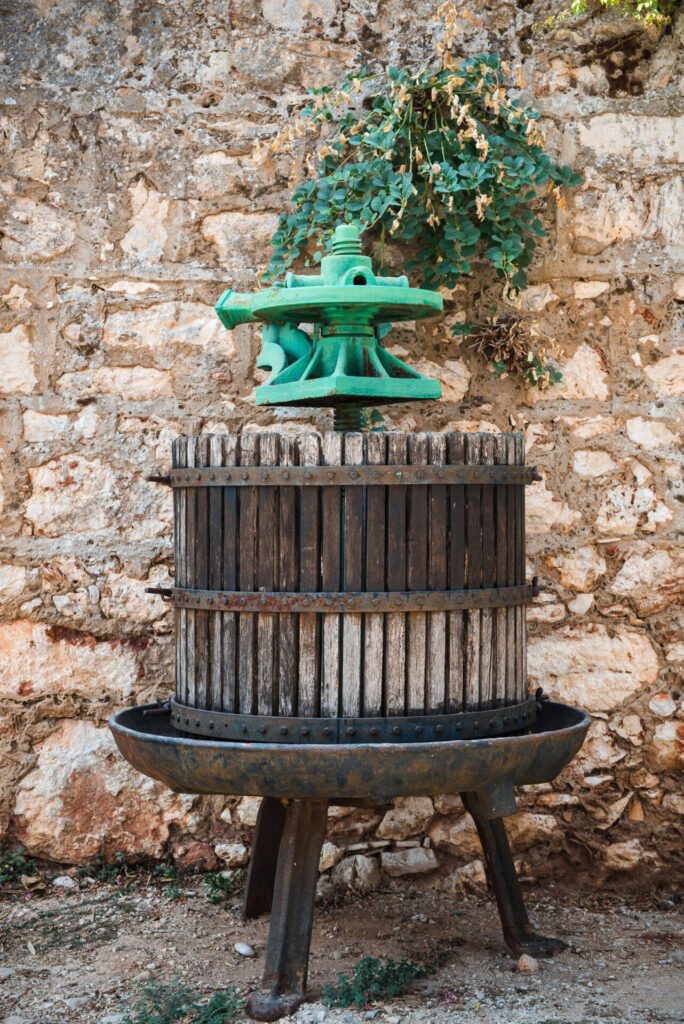
Hvar’s Wine History – An Overview
Hvar Island is known as the Island of Wine because of its long history of viticulture and viniculture.
It is not known exactly when the first vines were planted on Hvar, but wine has certainly been an important part of the island’s economy from the time the Ancient Greeks arrived from the island of Paros right up to the present day.
384 BCE. Greek incomers from the Island of Paros brought with them vines and olive plants. So these early plantings were on the UNESCO-listed Starigrad Plain. There is a lot of archaeological evidence of the importance of these crops in the shape of wine glasses, wine pitchers, stone inscriptions, coins stamped with grape images and amphorae,
2nd century BCE. The Romans conquered the island and improved wine production methods, besides building prestigious country houses (villae rusticae) on the Starigrad Plain and in other parts of the island, some of which are still occupied seasonally by private owners in the present time.
8-9th century CE. Incoming Croats took on and improved the island’s grape cultivation and agricultural production in general. There was rapid economic growth up to the second half of the 15th century, meeting an increased demand for the island’s wines.

19th century. Hvar’s wine production reached its zenith. The wines, especially the reds, were in great demand because the French and Italian vineyards were suffering from devastating diseases in their vines, namely phylloxera, downy mildew (Plasmopara viticola), and powdery mildew (fungal disease). There were some 200 grape varieties in Dalmatia at the time, which was the golden age of Hvar’s viniculture.
Beginning of the 20th century. Hvar’s vines succumbed to disease, the islanders lost a great part of their source of income, and there was mass emigration from the island.
Nowadays much less of the island is under vineyard cultivation, but the good news is that due to modern technology and increased demand there is great and ever-increasing emphasis on producing superior-quality wines for a discerning market.





